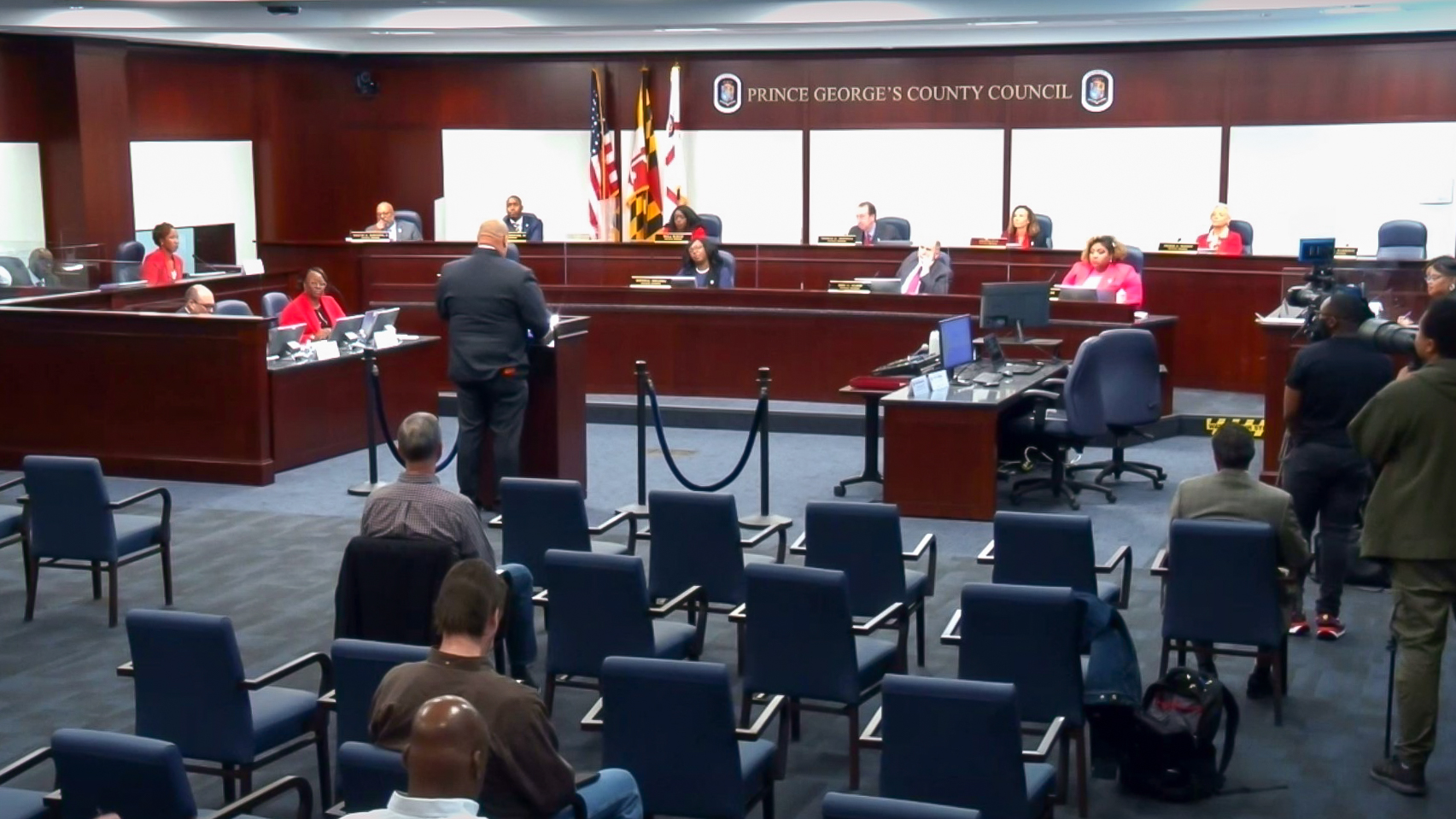The Prince George’s County Council held a public hearing Tuesday for a bill that would increase public transparency for future zoning ordinances created by the county.
Under the proposed bill, CB-002, the county council would be required to notify county residents about the time and place of a public hearing for a new zoning law at least 14 days before the public hearing is scheduled through a newspaper circulated within the county. The bill comes after county residents expressed concerns about a lack of input on zoning ordinances passed by last year’s county council.
The bill would also require the council to notify the public about late revisions to a development plan by developers, called text amendments. Text amendments are a major point of contention for many residents after numerous controversial zoning provisions in recent years.
Council chair Tom Dernoga, one of the bill’s six sponsors, emphasized how the bill marks an important shift from previous county councils and hopes the measure will help correct past mistakes.
[South Asian leaders in Maryland hope to inspire a new generation of politicians]
“This bill is intended to make a significant departure from the current process,” Dernoga said.
Last year, the council passed the Bowie-Mitchellville and vicinity sectional map amendment to repurpose Bowie’s Freeway Airport into a residential area. Bowie residents protested the decision, arguing the provision would add another burden to an already traffic-congested area and cited a disregard for public opinion in the zoning process.
Proponents of CB-002 said the measure will help prevent such situations in the future by requiring community feedback and oversight at every step of the development process.
The ordinance also mandates the county’s planning board submit comments and recommendations to legislative amendments within five days of being notified of them and hold public hearings on amendments within 30 days. These additional requirements would lengthen the text amendment approval process to seven to nine months.
The proposed measure was met with overwhelming support from county residents at the public hearings on the bill.
Cheverly resident Dan Smith suggested the bill would help instill public confidence in the county council after a period of distrust resulting from past zoning legislation.
“The misuse of power and influence that has occurred as a result of past practices with zoning text amendments must come to an end,” Smith said. “This bill is necessary to restore confidence in the council and the development process.”
Residents who had been directly impacted by past zoning measures also commended the county council in its effort to boost public involvement in zoning procedures.
[Prince George’s County Council looks to subsidize private security cameras]
Jill Oliver, the vice president of the Fairwood Community Association board, lives just two miles from Bowie’s Freeway Airport, the site of last year’s controversial repurposing project.
Oliver said text amendments to the project left her community unable to speak up about development efforts and forced them to invest significant resources in the ensuing legal battle.
“Fairwood residents had to spend significant funds and resources to stop this assault on our community,” Oliver said. “However, many other communities in Prince George’s County aren’t so lucky to have the resources and expertise to mobilize and fight against these actions.”
While most residents supported the measure, others took issue with the proposed timeline for passing text amendments for a development plan.
Edward Gibbs, a lawyer from Largo, argued that while legislative amendments have a poor reputation, many text amendments are necessary for a successful development plan. Gibbs added that it could potentially take seven to nine months for a text amendment to be approved under the bill.
The bill is expected to pass the county council with the support of the council’s new liberal majority.



